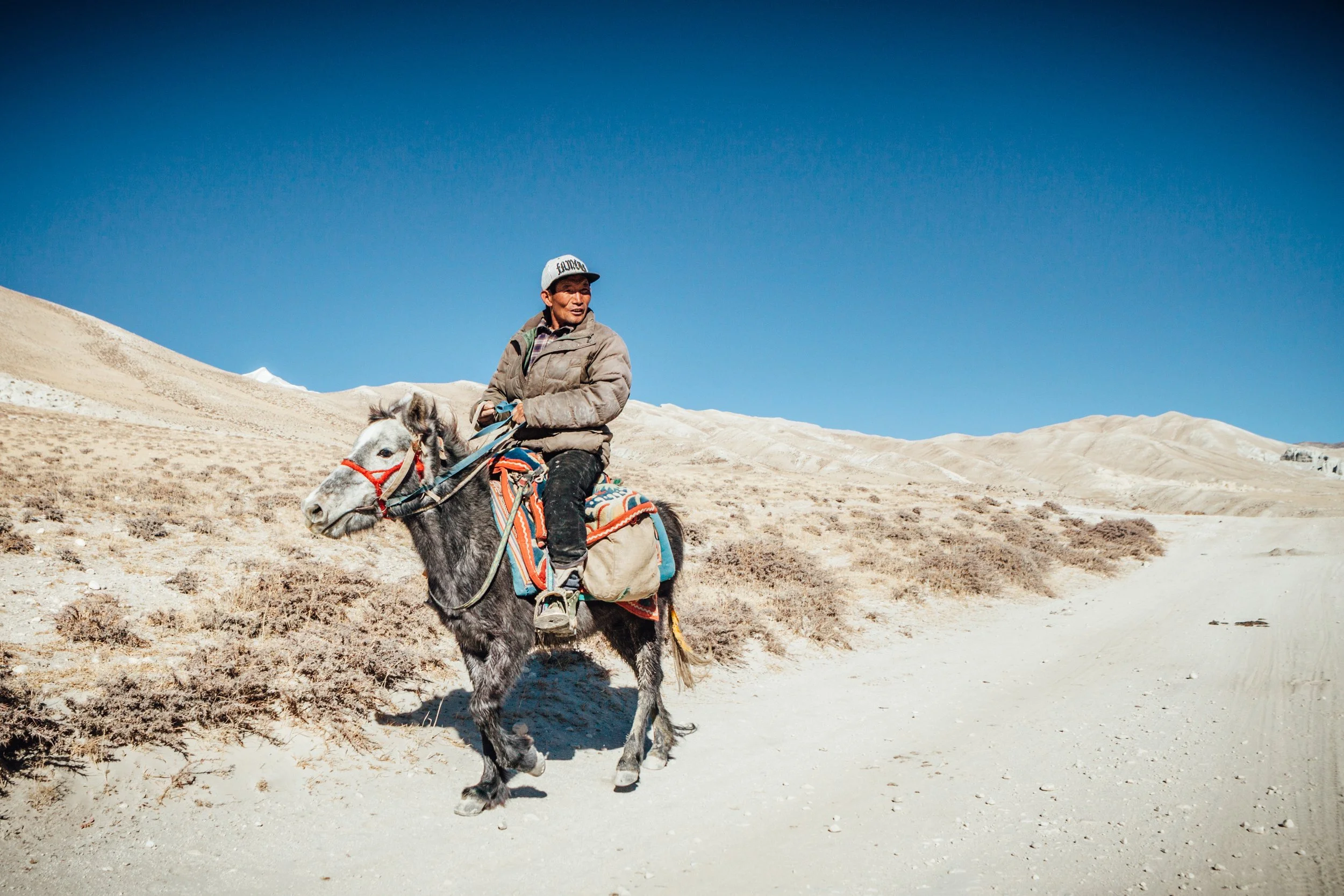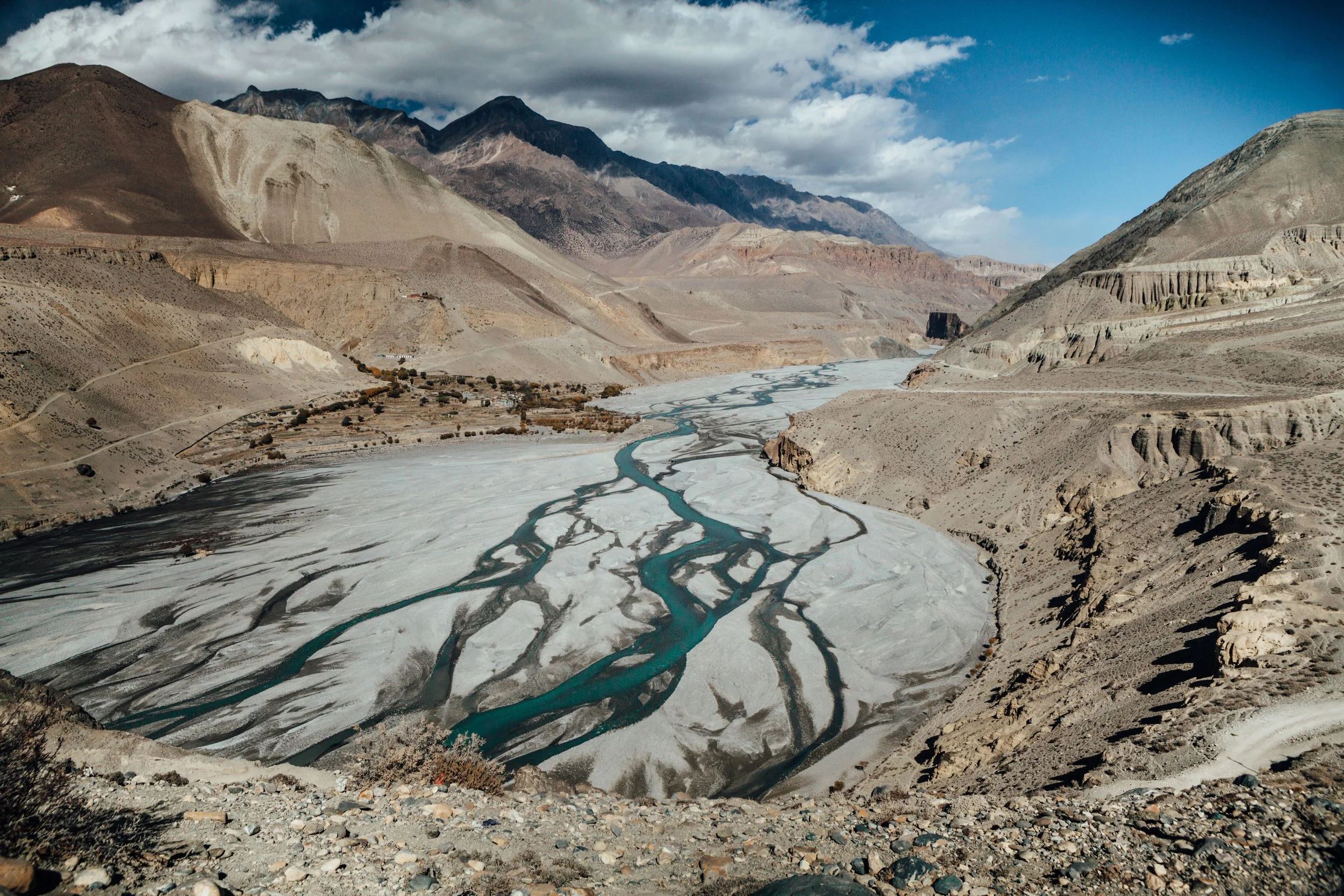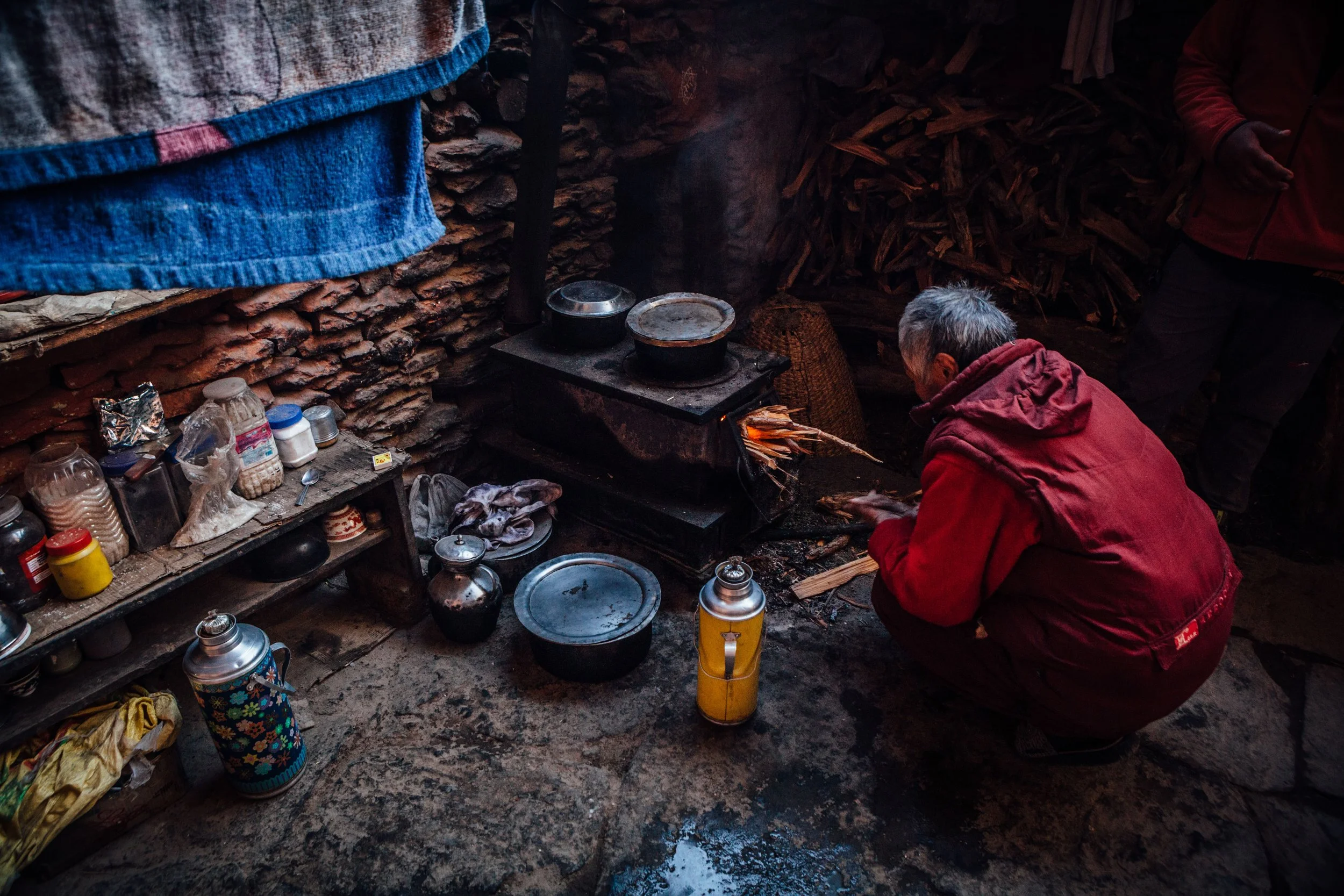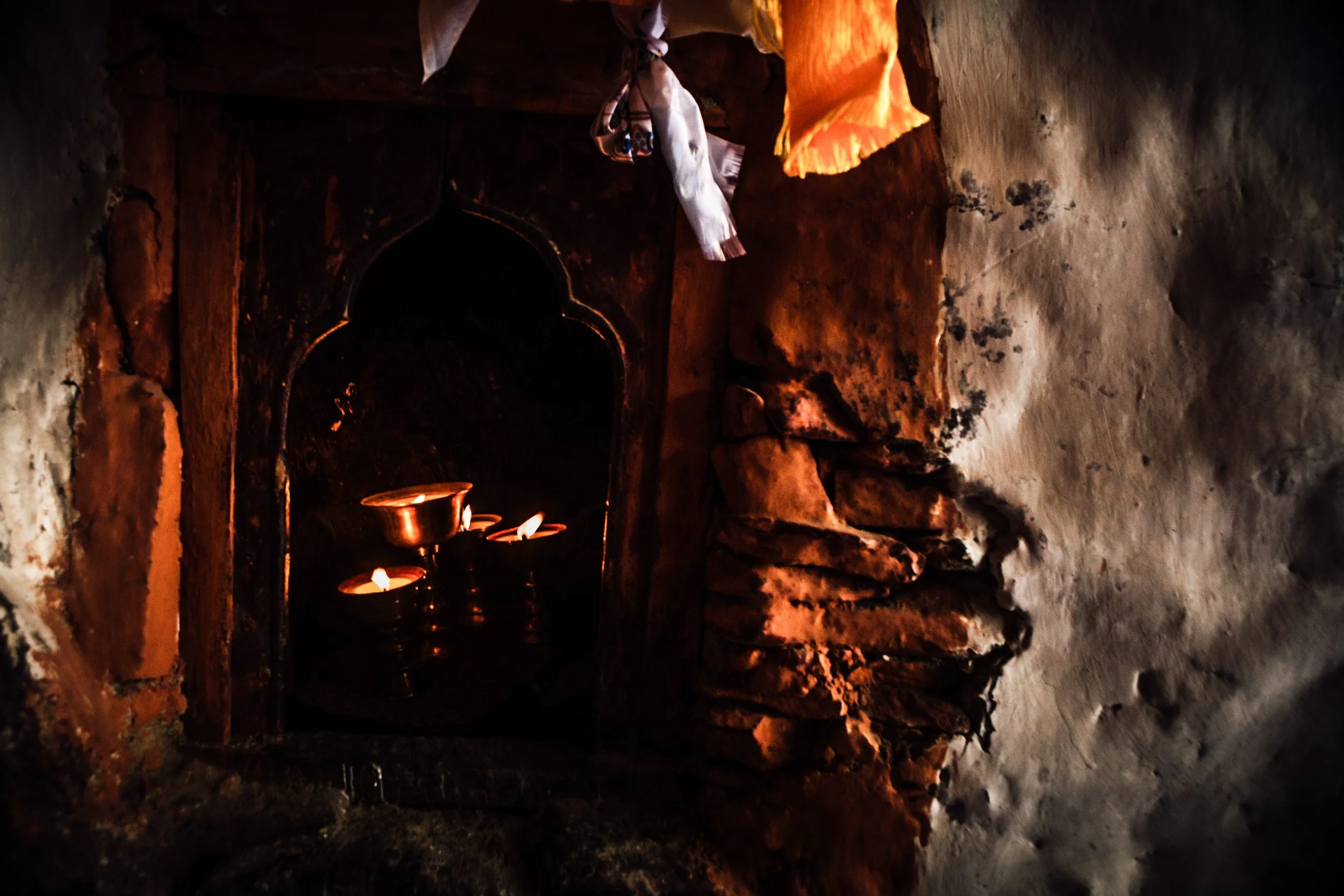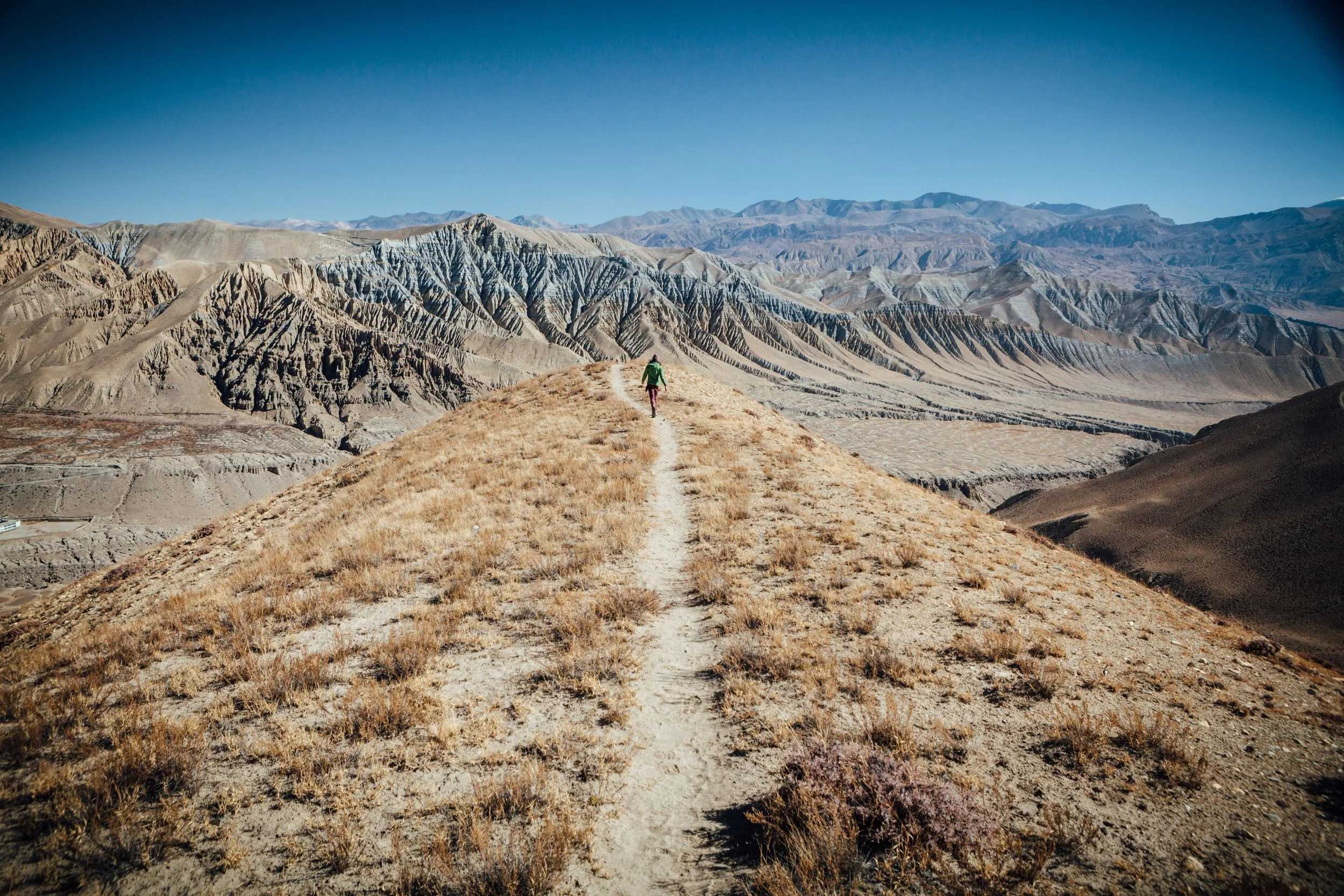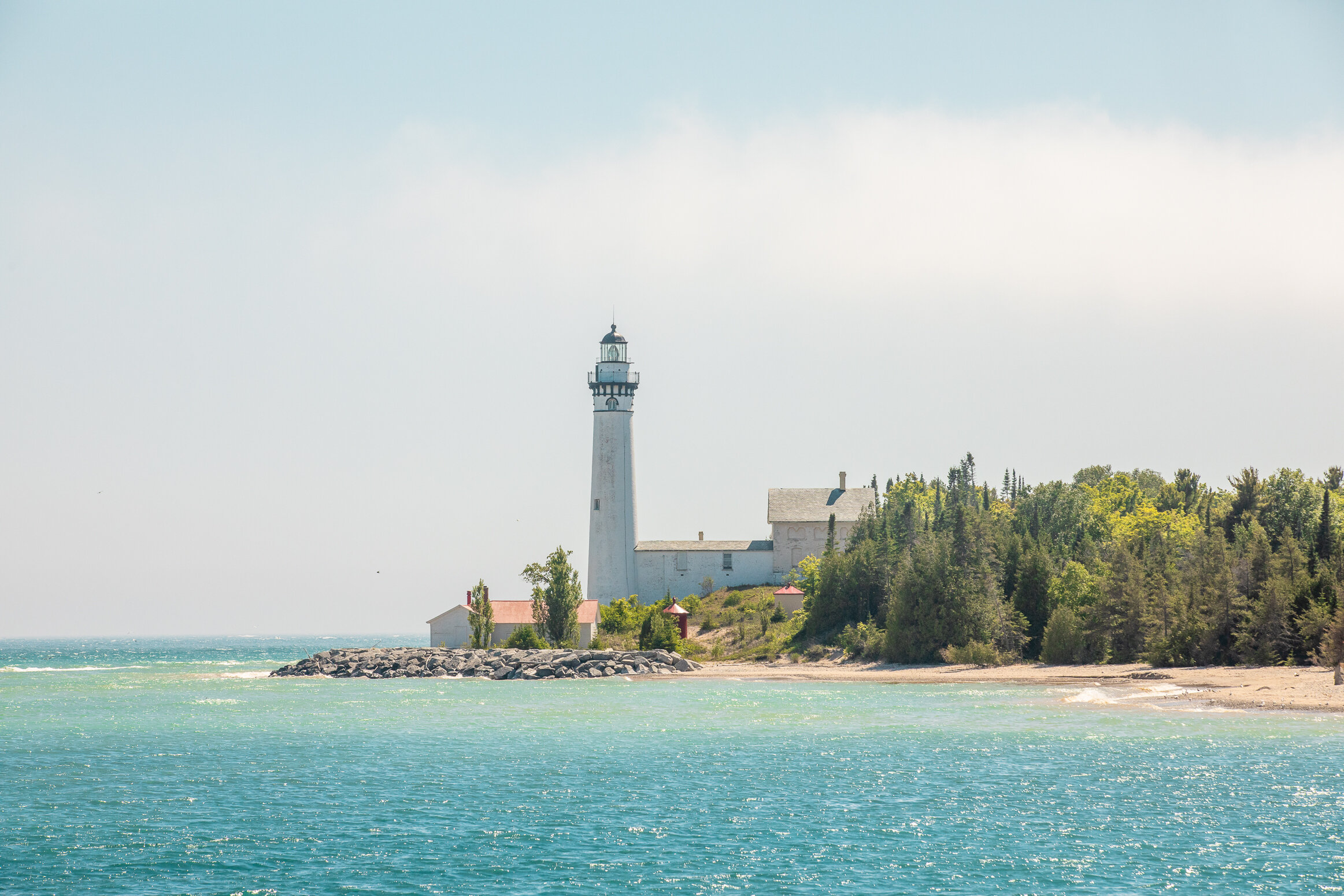Bones of Rock & Sand

by/por Alberto Ojembarrena
I can hear the vulture’s beak scraping the horse’s gray rib bone. It is not even mid-morning, and the corpse left by the snow leopard the night before had been picked clean by scavengers.
Puedo oír el pico del buitre raspando la costilla gris del caballo. Ni siquiera a media mañana, y el cadáver dejado por el leopardo de las nieves la noche anterior había sido limpiado por los carroñeros.
I pull my bandana up, covering my mouth to avoid breathing the desert dust. I look around at the wind-beaten buildings in the middle of an empty plain shining bright in the sun, and despite the piercing cold I feel a jolt of joy.
Me levanto el pañuelo, cubriéndome la boca para evitar respirar el polvo del desierto. Miro a mi alrededor, a los edificios azotados por el viento en medio de una llanura vacía que brilla bajo el sol y, a pesar del frío penetrante, siento una sacudida de alegría.
Our guide, Ongchhu, looks at us and smiles. We shared a fascination with the spectacle laid out before us. I have never met someone as curious as he: hiking in a pair of old boots, his dark skin weathered by a lifetime in the highest mountains on Earth, always with a smile, always encouraging us to see his next “secret” trail or vista.
Nuestro guía, Ongchhu, nos mira y sonríe. Compartimos una fascinación por el espectáculo que se presentó ante nosotros. Nunca he conocido a alguien tan curioso como él: caminando con un par de botas viejas, su piel oscura curtida por toda una vida en las montañas más altas de la Tierra, siempre con una sonrisa, siempre animándonos a ver su próximo sendero o vista "secreto".
We met only 15 days ago when we landed in Kathmandu. I had visited the Himalayas previously, but was unaware that behind the incomprehensibly large Annapurna Range was the hidden and largely forgotten “Kingdom of Lo” tucked high in the Mustang Valley, shaped over millennials by glaciers and the waters of the Kali Gandaki River.
Nos conocimos hace solo 15 días cuando aterrizamos en Katmandú. Había visitado el Himalaya anteriormente, pero no sabía que detrás de la incomprensiblemente grande Cordillera del Annapurna estaba el "Reino de Lo" escondido y en gran parte olvidado, escondido en lo alto del Valle de Mustang, formado durante milenios por los glaciares y las aguas del río Kali Gandaki.
The Mustang District, divided into the upper and lower regions, was closed to foreigners and heavily militarized until the mid 1990s. The Buddhist kingdom of 7,000 people is steeped in Tibetan traditions, and traces its history back to its founding in 1380 by the warrior Ame Pal. It remains largely untouched by outside influence and feels frozen in time.
El distrito de Mustang, dividido en las regiones superior e inferior, estuvo cerrado a los extranjeros y fuertemente militarizado hasta mediados de la década de 1990. El reino budista de 7.000 habitantes está impregnado de tradiciones tibetanas y su historia se remonta a su fundación en 1380 por la guerrera Ame Pal. Permanece en gran parte al margen de la influencia externa y se siente congelado en el tiempo.
We continue on our trek up steep trails and past vistas of red and white mountains, hearing stories of the buried bones of demons slain in battles between ancient gods. Ongchhu tells us that the trail we are on has been used for millennia by traders, and is now the trail to the capital of the Kingdom of Lo.
Continuamos nuestra caminata por senderos empinados y vistas pasadas de montañas rojas y blancas, escuchando historias de los huesos enterrados de demonios asesinados en batallas entre dioses antiguos. Ongchhu nos dice que el sendero en el que nos encontramos ha sido utilizado durante milenios por los comerciantes, y ahora es el camino hacia la capital del Reino de Lo.
We see no other foreigners. Upon seeing us, the villagers keep their distance, giving us looks of slight confusion. Children run behind us holding the red flags of the Communist Party, apparently distributed ahead of the upcoming national election.
No vemos otros extranjeros. Al vernos, los aldeanos mantienen la distancia, dándonos miradas de leve confusión. Los niños corren detrás de nosotros sosteniendo las banderas rojas del Partido Comunista, aparentemente distribuidas antes de las próximas elecciones nacionales.
Reaching the Upper Mustang we enter a network of maze-like caves, possibly created by the joint effort of humans and natural forces of wind and water. The origin of the caves are lost to history, and have only been recently studied by researchers who discovered Buddhist paintings, writings, and artifacts dating back to the 12th century.
Al llegar al Upper Mustang, ingresamos a una red de cuevas en forma de laberinto, posiblemente creadas por el esfuerzo conjunto de los humanos y las fuerzas naturales del viento y el agua. El origen de las cuevas se perdió en la historia y solo recientemente han sido estudiados por investigadores que descubrieron pinturas, escritos y artefactos budistas que datan del siglo XII.
Nearby, the monasteries perch like eagles overlooking the valley. Monks inside are working and meditating as incense smoke wafts through old wooden rooms.
Cerca de allí, los monasterios se posan como águilas sobre el valle. Los monjes en el interior trabajan y meditan mientras el humo del incienso fluye a través de las viejas habitaciones de madera.
At night we share a fireplace and cups of overspiced black tea, and the elders share quiet tales of survival of an incomprehensibly harsh war in an equally harsh landscape.
Por la noche compartimos una chimenea y tazas de té negro algo sobre especiado, y los ancianos comparten tranquilas historias de supervivencia de una guerra incomprensiblemente dura en un paisaje igualmente duro.
In a distant corner of the room there is a woman steadfastly working a butter churn. Soon it is the only sound that remains, like the ticking of a clock as the staff knocks against the ancient theki.
En un rincón distante de la habitación hay una mujer trabajando con determinación en una mantequera. Pronto es el único sonido que queda, como el tic-tac de un reloj cuando el bastón golpea contra el antiguo theki.





